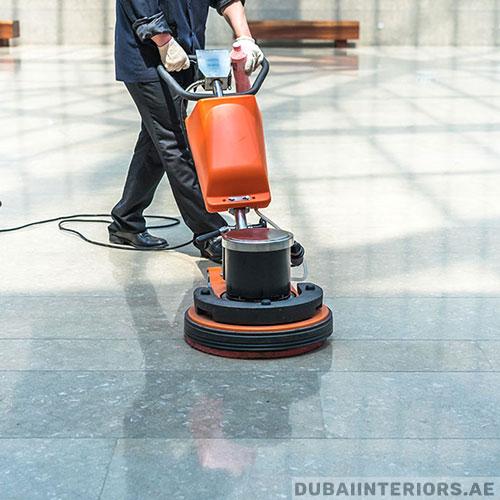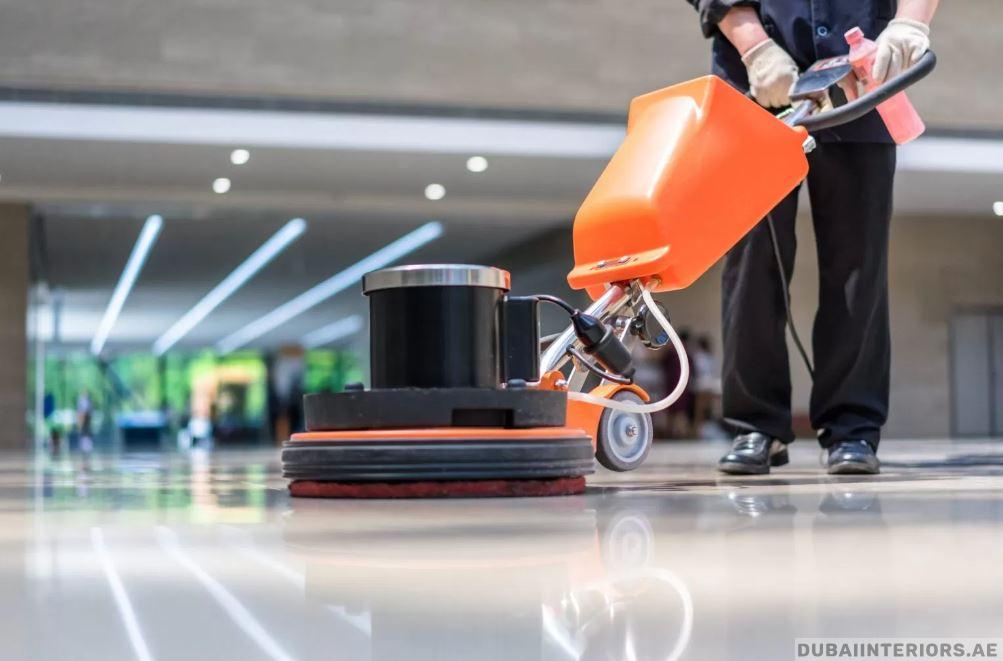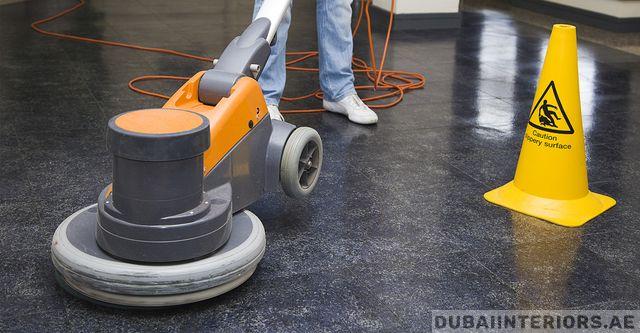
Regular Floor Polishing: Key to Aesthetic & Durability
A gleaming floor can be the crowning jewel of any space, adding a touch of elegance and sophistication. But it’s not just about aesthetics – a well-maintained floor can also be a durable and long-lasting surface that can withstand the wear and tear of daily use. The secret to achieving and maintaining both beauty and durability lies in regular floor polishing.
The benefits of regular floor polishing
Regular floor polishing is a crucial aspect of maintaining the appearance and durability of floors. There are several key benefits to regular floor polishing, including:
Improved appearance of floors
Polishing removes scratches, scuffs, and other imperfections, leaving floors shiny and new. This can greatly enhance any space’s aesthetic appeal and can significantly affect how visitors perceive the space.A polished floor is like a mirror, reflecting light in a way that transforms the entire space into a brighter, cleaner, and more inviting environment.

Increased durability and longevity of floors
Regular polishing acts as a shield, protecting floors from the everyday wear and tear, ensuring their longevity. The polishing process smooths out the surface of the floor, filling in small scratches and scuffs that can accumulate over time. This can help to prevent further damage from occurring and can extend the life of the floor.
Protection from scratches and stains
Polishing creates a barrier on the floor surface that helps to repel stains and scratches. This barrier can make it more difficult for dirt and debris to penetrate the floor’s surface, making it less likely to stain or scratch. This can be especially important for high-traffic areas, such as commercial spaces or homes with children or pets.
Easier maintenance
A polished floor is low maintenance, making cleaning and upkeep a breeze, making it a convenient choice for households and commercial spaces alike. A polished floor is less likely to attract dirt and debris, and when it does, it can be easily cleaned with minimal effort.By making the cleaning and maintenance process easier, regular floor polishing can save significant amounts of time and money in the long run.

How to achieve regular floor polishing
Regular floor polishing requires a combination of the right frequency, products, and equipment. Here are some key considerations for each aspect:
Frequency of floor polishing (e.g. monthly, quarterly)
The frequency of floor polishing will vary depending on the type of flooring, the amount of foot traffic, and the level of wear and tear. For example, hardwood floors may need to be polished every three to six months, while tile and stone floors may only need to be polished every six to twelve months. It’s important to consult the manufacturer’s guidelines and professional’s recommendations to determine the appropriate frequency for your specific flooring type.
Types of products and equipment to use
Different types of floors have specific polishing needs and require different types of products and equipment. For example, hardwood floors should be polished using a specialized hardwood floor polish, which can be applied using a buffer or a mop.
Tile and stone floors should be polished using a specialized tile and stone polish, which can be applied using a buffer or a mop. You should use high-quality, specialized products and equipment designed specifically for your flooring type.
DIY vs professional floor polishing
Homeowners can use a home or commercial-grade buffer, but for best results, it is recommended to hire a professional floor polishing service. Professionals have the experience, knowledge, and equipment necessary to polish floors to a high standard. They can ensure that the appropriate products and techniques are used for your specific flooring type. Additionally, they can be more efficient in terms of time and effort.
Specific types of floors and their polishing needs
Different types of floors have specific polishing needs; here are some examples:
Hardwood floors: Hardwood floors should be polished using a specialized hardwood floor polish, which can be applied using a buffer or a mop. It is important to use a polish specifically designed for hardwood floors and to avoid using water or excessive moisture, as it can cause damage to the wood. It is also important to sand the floor before polishing to remove any surface imperfections.
Tile and stone floors: Tile and stone floors should be polished using a specialized tile and stone polish, which can be applied using a buffer or a mop. It is important to use a polish specifically designed for tile and stone and avoid using acidic or abrasive cleaners, as they can damage the surface of the tile or stone. Additionally, it’s important to use a sealant on the floor after polishing to protect it from scratches and stains.
Concrete floors: Concrete floors should be polished using a specialized concrete polish, which can be applied using a buffer or a mop. It is important to use a polish specifically designed for concrete and avoid using acidic or abrasive cleaners, as they can damage the surface of the concrete. Additionally, it’s important to use a sealant on the floor after polishing to protect it from scratches and stains.
Carpeted floors: Carpeted floors should be vacuumed regularly to maintain their appearance and durability. It’s important to use a vacuum cleaner with a high-efficiency particulate air (HEPA) filter to remove dust and dirt from the carpet fibers. To remove any ground-in dirt and stains, carpets should also be professionally cleaned every six to twelve months.
Why choose floor polishing from Dubai Interior?
Dubai Interior is a professional floor polishing service that offers its customers a wide range of benefits. The following are some reasons you should use Dubai Interior for floor polishing:
Experience and Expertise: Dubai Interior has a team of experienced professionals with the knowledge and expertise to polish various flooring types properly. They have the skills and equipment to achieve a polished finish on any floor.
Time and cost-efficient: Dubai Interior’s professional service can be more efficient in terms of time and effort than DIY floor polishing. As a result, you’ll save time and money in the long run since they can finish the job faster, with less hassle and less mess.
Flexibility: Dubai Interior can work around your schedule to minimize disruption to your daily routine. They can work during off-hours or weekends to accommodate your needs.
FAQs
- How often should a floor be polished?
The frequency of floor polishing depends on the amount of foot traffic and the type of use the floor receives. High-traffic areas may need to be polished more frequently than low-traffic areas.
- Can I polish my own floor?
It is possible to polish your own floor, but it is a labor-intensive process that requires specialized equipment and knowledge. It is usually recommended to hire a professional floor polishing service.
- What is the process of floor polishing?
The process of floor polishing typically involves the use of diamond abrasives and specialized equipment to grind and hone the floor surface. The floor is then polished to a high shine using progressively finer abrasives.
Transform your floors with Dubai Interior’s professional floor polishing services today. Contact us now to schedule a consultation and see how we can enhance the beauty and longevity of your floors.

